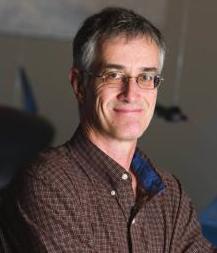21st January 2015 Washington DC, USA
Falklands Symposium: Q&A with Dr Steven Campana (Canada)
Following in the footsteps of Charles Darwin, the first ever Pan–American Science Delegation to the Falkland Islands will participate in a week-long mission to showcase the beauty of the UK South Atlantic Overseas Territories and immense opportunities for scientific research and collaboration in the Falkland Islands and South Georgia.
Scientists from the US, Canada, Chile, Brazil, Mexico and Columbia have the opportunity to form partnerships and collaborate with the South Atlantic Environmental Research Institute (SAERI) with the aim of establishing the Falklands and the wider South Atlantic as a place for groundbreaking scientific research.
Follow the delegation at #FalklandSci
This week we will be posting a short Q & A with the participants, discussing their research and what they learned from this unique, pristine environment.
 Q: The Falkland Islands are a largely un-researched, pristine environment for scientific exploration but also due to its remote location not much is known about life on the island. What did you expect the Falklands to be like in terms of culture and heritage? How is the reality different to your expectations?
Q: The Falkland Islands are a largely un-researched, pristine environment for scientific exploration but also due to its remote location not much is known about life on the island. What did you expect the Falklands to be like in terms of culture and heritage? How is the reality different to your expectations?
I really had no expectations about the people or culture before I arrived, but if I had, they would have been torn to shreds: the people are great! Honest, hard-working and straight forward – I wish more countries were like this.
Q: SAERI and the Falkland Islands Government highlight that environmental stewardship is vital to establishment of home for scientific expertise on the Islands as well as its long term sustainability. What have you observed in this regard on the Island?
The fish and wildlife on and around the Falklands is largely pristine, which makes it particularly important to conserve the environment before any damage is done. It is orders of magnitude easier to protect sensitive environment when pristine than to attempt to recover from overexploitation.
Q: As a scientist and expert in your field, what are you hoping to get out of this delegation?
I study fish populations in Canada and Iceland, where the environmental conditions are very similar to those in the Falklands. So to a Canadian scientist, it is fascinating to see how life has evolved under Canadian temperatures in a location on the other side of the world.
Q: The UK places a great deal of value on excellence in Science and the importance of the internationalisation of Science. Do you have international collaborations in place with the UK? If so, please describe.
I have been collaborating with UK scientists on shark research for several years now. It’s turned out to be very productive and beneficial to both sides, with me being able to train them in methods to attach satellite tags to sharks while they have provided me with valuable advice in shark population models. Win-win.
Q: Global environmental challenges require international cooperation to achieve effective solutions. SAERI is a world class research institute working in the South Atlantic. What ways do you see SAERI contributing now and in the future
SAERI is already working with world-class climate change scientists from other countries. In addition to their own excellent scientists, I see SAERI contributing most by continuing to extend their collaborations to even more countries. And that is what they’re doing now, by hosting symposia like this one.
Q: Describe what you do and how the Falklands Islands provide an environment for scientific study. What are the broader applications of your work?
I am a specialist in shark and fish populations, as well as methods to track their movements. With its impressive numbers of both fish and squid, I hope to extend the use of our methods to a brand new environment. And I may just find more sharks here than anyone has yet suspected!
Q: This delegation was designed to bring together scientists from a diverse range of countries and academic backgrounds in order to build a network of people who know about and use the Island as a scientific resource. What role do you think this scientific delegation will play in creating links between countries and disciplines?
This delegation is likely to be way more successful in promoting scientific collaborations with other countries than I had predicted! This trip has created an obvious feeling of excitement about the scientific possibilities among most or all of the visiting scientists. So the delegation approach has worked!
Dr Steven Campana is a Senior Scientist at the Bedford Institute of Oceanography. He directs an active research program on fish population dynamics, with particular emphasis on the development of new technologies in support of age determination, stock discrimination and fish tracking. He currently heads both the Otolith Research Laboratory and the Canadian Shark Research Laboratory.